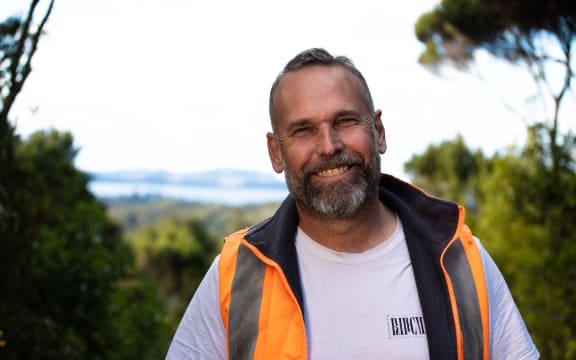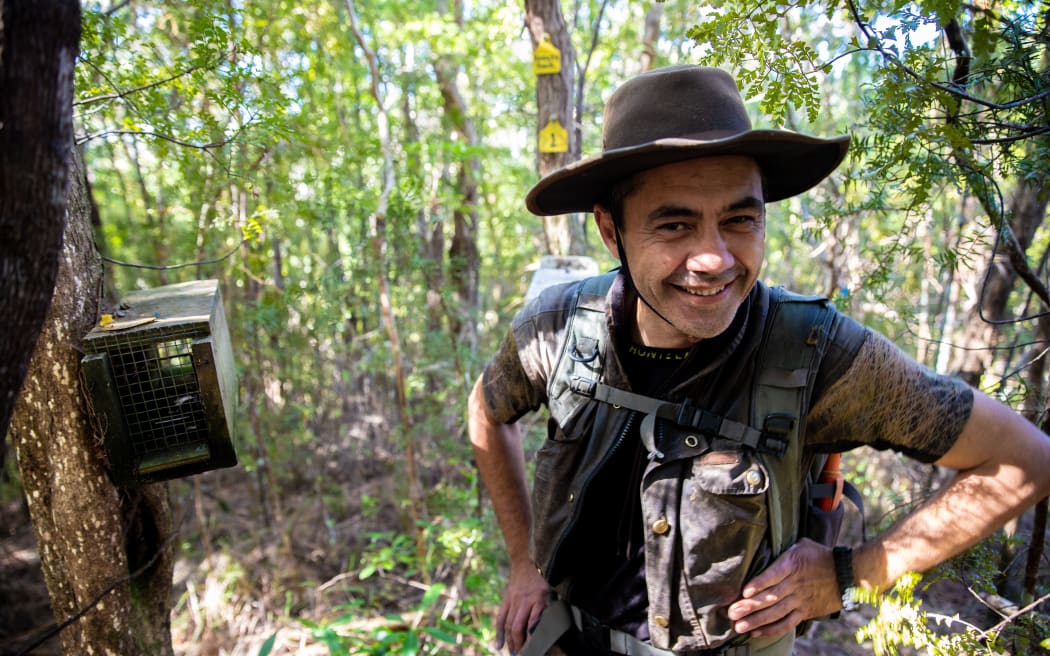Eight kiwi have been found mauled by dogs in Northland's Ōpua Forest by Bay Bush Action Group in the past month alone.
The group has spent 12 years working to restore the forest and had seen the number of kiwi found in the bush grow from virtually zero to around 20.
Like many native forests, pests had free reign in Northland's Ōpua Forest for around 30 years.
The two thousand hectare forest near Paihia fell silent and was in full collaspe.
But 12 years ago Bay Bush Action Group was founded and began to bring it back to life, targeting possums, feral cats, rats and stoats.
Bay Bush Action member Dean Baigent-Mercer said the results spoke for themselves.
"These are some lovely little green hood orchids they're native and they come up at the end of winter start of spring.
"Having them here means that there's not high possum numbers because they just come and mow them down."
Sounds of native birds like tūī, miromiro and kākā now filled the forest.
Kiwi have also made a comeback.
"Four, five years in, suddenly there was one call then another in these places that didn't have any birds and so their numbers built up over about five years quite rapidly."
But chairperson of the group Craig Salmon said the last month had been devastating, eight kiwi had been killed by roaming dogs.
"It's pretty clear and pretty evident that dogs have done this damage it's really gutting you know, we put [in] enormous effort we get all these people involved to have it kind of like just disappear in an instant it's gutting."

Bay Bush Action Group chairperson Craig Salmon. Photo: RNZ / Marika Khabazi
He said if owners could not keep their dogs under control, there would be little hope for kiwi in the forest.
"You've absolutely got to know where your dog is and at all times, roaming dogs are an absolute no-no.
"Know where your dog is and know your dog and keep it safe and keep our kiwi safe."
But all was not lost, kiwi had recently been heard in the forest and as Craig was showing RNZ around he spotted a burrow, that had been recently used.
Ariki Baldwin was one of about 30 workers in charge of checking the traps once a month, there were 4000 traps in total in the forest.
His assigned area covered about 200 hectares and took him four days to complete, so he stayed in the bush while on the job.
"I love it, I worked in an office for years I'd never go back."

Ariki Baldwin, one of about 30 workers in charge of checking the traps once a month. Photo: RNZ / Marika Khabazi
But Baldwin said the best part of the job was when he saw the fruits of his labour.
"There's a plant called the kiekie and it has this fruit called the tāwhara [it's] the most beautiful fruit I think the native bush produces. I hadn't seen that plant and fruit for about 40 years... and two years ago ... I saw this plant."
Once a female kiwi has laid her egg, the male sits on it for 80 days, at night time they call to each other.
Despite the recent spate of attacks, recently the group heard their calls.
Bay Bush Action took RNZ out at night to the spot where a male and female had recently been.
Because the forest had a history of being burnt, there were fewer trees available for kiwi to burrow under.
Fifteen wooden kiwi boxes were dotted throughout the forest.
Craig Salmon said this provided protection while the birds were nesting.
Despite his best efforts, even playing a recording of a kiwi call to try and get a response, it was an unsuccessful attempt to spot any kiwi.
The group's work is made possible by a mixture of hundreds of volunteers and some workers paid through the government's Jobs for Nature scheme.
But Salmon said come next year there was huge uncertainty.
"We don't have secure funding going forward for continuing this really great work...we're actually really concerned that in this election no political party has really talked about how they're going to continue funding successful jobs for nature projects."
The group's work was vital to reach the country's predator free 2050 goal and to restore native kiwi numbers.

